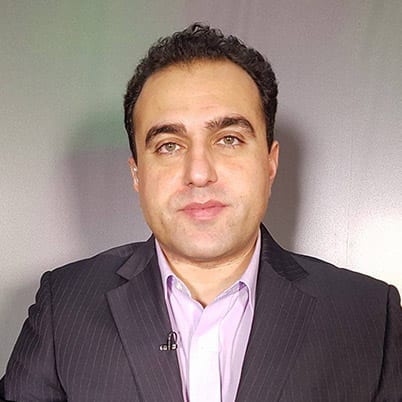Israeli Prime Minister Benjamin Netanyahu’s surprise visit to Oman last Friday has predictably elicited widespread favourable coverage on the Israeli media. Notwithstanding this fanfare, there is no denying that the visit marks a significant diplomatic victory for Israel as it further erodes the Jewish state’s isolation in the Middle East.
More importantly, the visit calls into question Oman’s diplomatic foresight as well as the Sultanate’s strategic calculations. Even if we accept at face value Muscat’s contention that outreach to Israel helps bridge the gap between Palestinians and Israelis, there is no getting away from the wider negative political ramifications of Netanyahu’s visit.
Sultan Qaboos’s embrace of Netanyahu and his stated desire to “accept” Israel is an implicit acceptance of Israel’s current regional posture, including the relentless assault on Gaza and near-daily aggression against Syria.
More broadly, strong diplomatic overtures to Israel is by extension a form of implicit alignment with the Saudi-led regional block which is increasingly coordinating with Israel against Iran and its allies. At minimum, this visit will alarm Iran which has traditionally looked to Oman to safeguard its interests in the region and beyond.
Read: Secret Bahrain, Israel talks in preparation for open relations
By embracing Israel – and by extension moving away from Iran – Oman is knowingly or unknowingly intensifying regional polarisation.
Niche role
Oman has long prided itself on playing an independent regional role. Officially a member of the Gulf Cooperation Council, nevertheless by all credible accounts Muscat has been a reluctant member state of this Saudi-led block. There were even rumours a couple of years ago that Muscat was planning to hold a referendum on continuing membership of the GCC.
There are three important issues on which Oman disagrees with Saudi Arabia. Foremost, Oman has historically maintained close ties to Iran, both during the Pahlavi era and contemporaneously under the Islamic Republic.
Second, Muscat is officially neutral in the Saudi-Qatar spat, but behind the scenes Oman has quietly strengthened its ties to Doha. Third, whilst officially neutral on the Yemen conflict, it is an open secret that Muscat is strongly opposed to the Saudi prosecution of the war, to the extent of perhaps facilitating arms transfers to the Houthi rebels.
Above all, Oman’s strong ties to Iran make it an interesting and useful player on the regional stage. These ties stretch all the way back to the early 1970s when the former Shah of Iran decisively intervened in the Dhofar conflict.
Read: Bahrain to host Israel delegation at UN meeting
Oman owes its territorial integrity – indeed its political cohesion as a nation-state – to that fateful Iranian intervention. Oman’s ruler, Sultan Qaboos, is on record as saying that he “owes” his “Kingdom” to the Iranian “martyrs” who died fighting the Marxist-leaning Dhofar rebels.
This background helps explain Oman’s enduring strong ties to Iran, even at a time when most of the Arab world is at odds with the Islamic Republic. Iranian-Omani ties serve a wide range of useful functions in general terms (by maintaining a semblance of stability in the Gulf) and more specifically by helping to connect Iran to the West at crucial moments.
For example, Oman has repeatedly successfully mediated between Iran and the United States, most recently by hosting secret talks which eventually led to the landmark nuclear deal of 2015, known as the Joint Comprehensive Plan of Action.
The Israeli spoiler
Oman’s role as a mediator between Iran and the US has touched off some strange analysis, notably the dubious contention that Netanyahu visited Muscat to open a back channel with Iran. This is little more than Israeli propaganda, designed to make Muscat even more complicit in Israel’s real regional agenda.
Iran and Israel are currently at war – albeit an undeclared one – as evidenced by their first ever direct clash back in May and more broadly by over 200 Israeli air strikes on Iranian and Iranian-aligned targets in Syria in the past 18 months alone.Whilst Iran is clearly anxious to protect its assets and infrastructure in Syria from repeated Israeli air strikes, these efforts are concentrated at the tactical and operational levels. Iran is not seeking to engage Israel politically or diplomatically with a view to easing the pressure.
Read: Israel strikes 80 sites across Gaza
On the contrary, some high-ranking American military officials worry aloud that Iran may retaliate against US forces in Syria and Iraq with a view to both exacting revenge (as Iran believes the US supplies much of the intelligence used by Israel in its air strikes) and more importantly to contain Israel’s offensive posture in Syria.
In other words, Iran may be contemplating escalation – not de-escalation by way of secret talks with Israelis in Muscat – in order to deter Israeli strikes on its Syrian establishment.
In fact, as Iranian diplomats and experts argue, Netanyahu’s visit to Muscat is part of a larger effort at blocking Iran’s access to the outside world once full US sanctions kick in early next month. More specifically, Netanyahu is seeking to spoil Iran’s historically strong relations with Oman.
Netanyahu may be over-reaching (as he often does) but there is no getting away from the symbolism of his visit to Muscat, especially as his entourage reportedly included the head of the Mossad spy agency.
Oman’s self-declared role as a force of balance and moderation in the region has been significantly undermined by this wrong diplomatic move at the wrong time. It remains to be seen what measures (if any) the Sultanate will take to remedy the situation.
The views expressed in this article belong to the author and do not necessarily reflect the editorial policy of Middle East Monitor.


![Prime Minister Benjamin Netanyahu (L) on an official diplomatic visit to Oman where he met with Sultan Qaboos bin Said on 25 October 2018 [PM of Israel/Twitter]](https://i0.wp.com/www.middleeastmonitor.com/wp-content/uploads/2018/10/2018_10-25Prime-Minister-Benjamin-Netanyahu-in-Oman-DqcGpxnWoAAltw6.jpg?fit=1200%2C800&ssl=1)

![Israeli Prime Minister Benjamin Netanyahu [Abdülhamid Hoşbaş/Anadolu Agency]](https://i0.wp.com/www.middleeastmonitor.com/wp-content/uploads/2018/06/Netanyahu.jpg?resize=1200%2C800&ssl=1)
![What was the role of Prince MBS in Jamal Khashoggi's death - Cartoon [Sabaaneh/MiddleEastMonitor]](https://i0.wp.com/www.middleeastmonitor.com/wp-content/uploads/2018/10/m25-10-2018-1200x745.jpg?resize=933%2C579&ssl=1)








